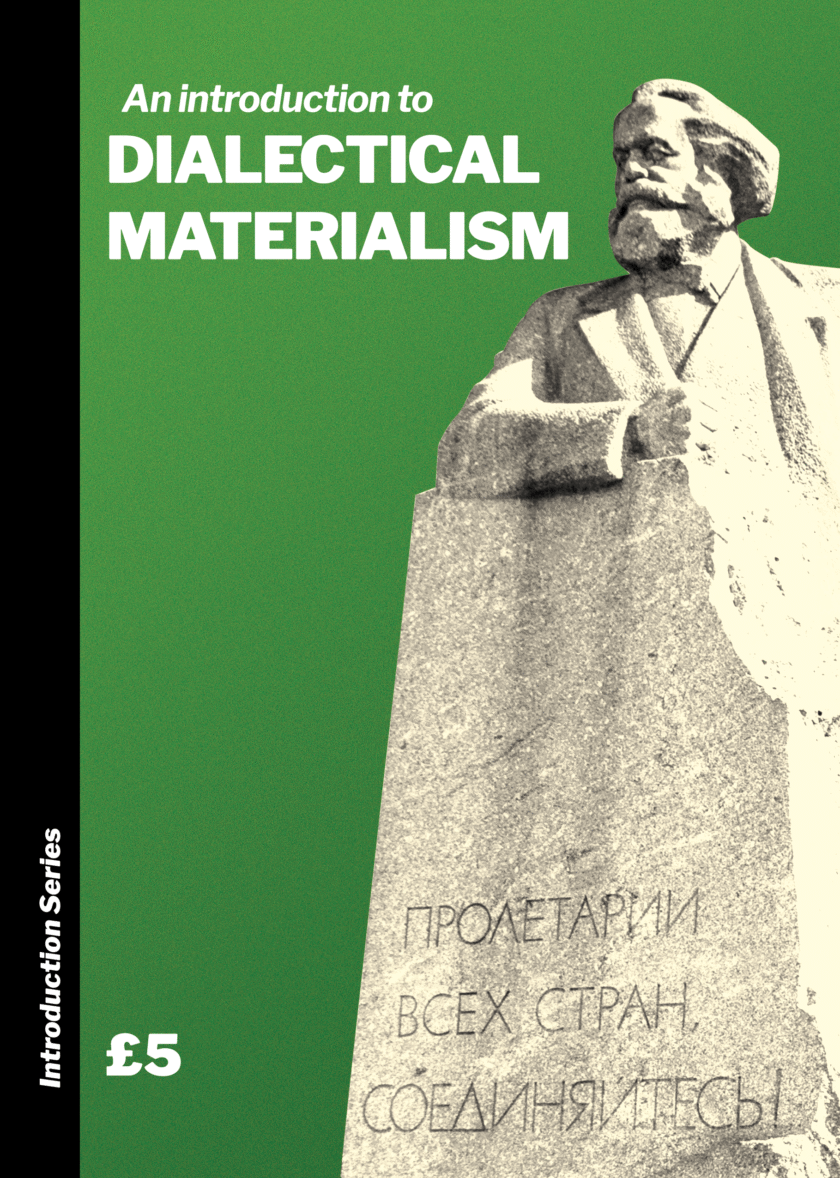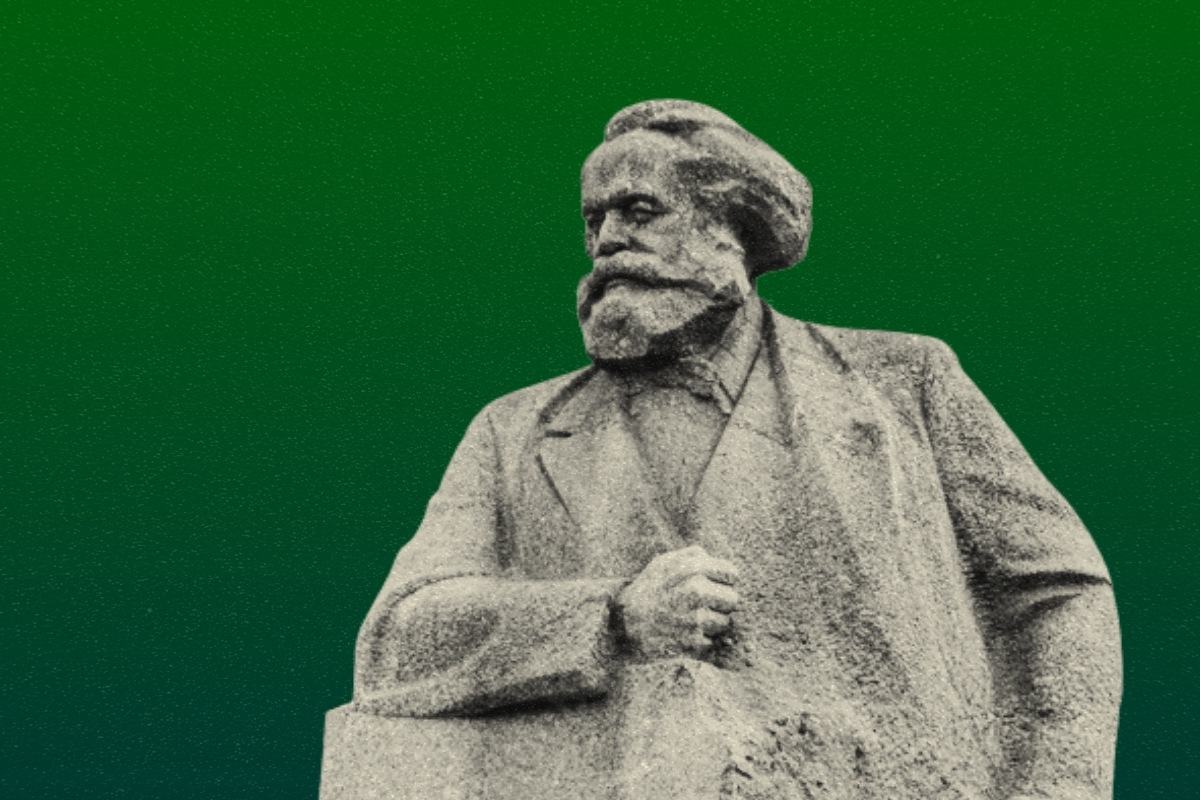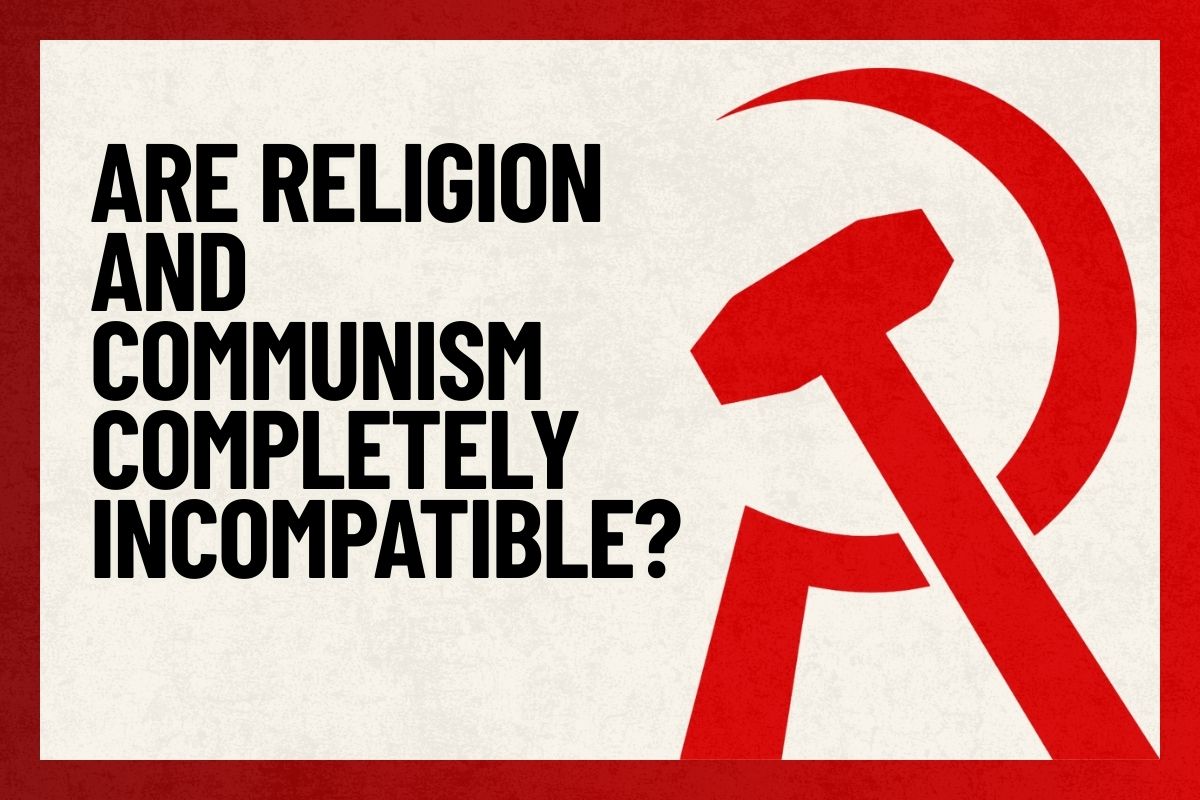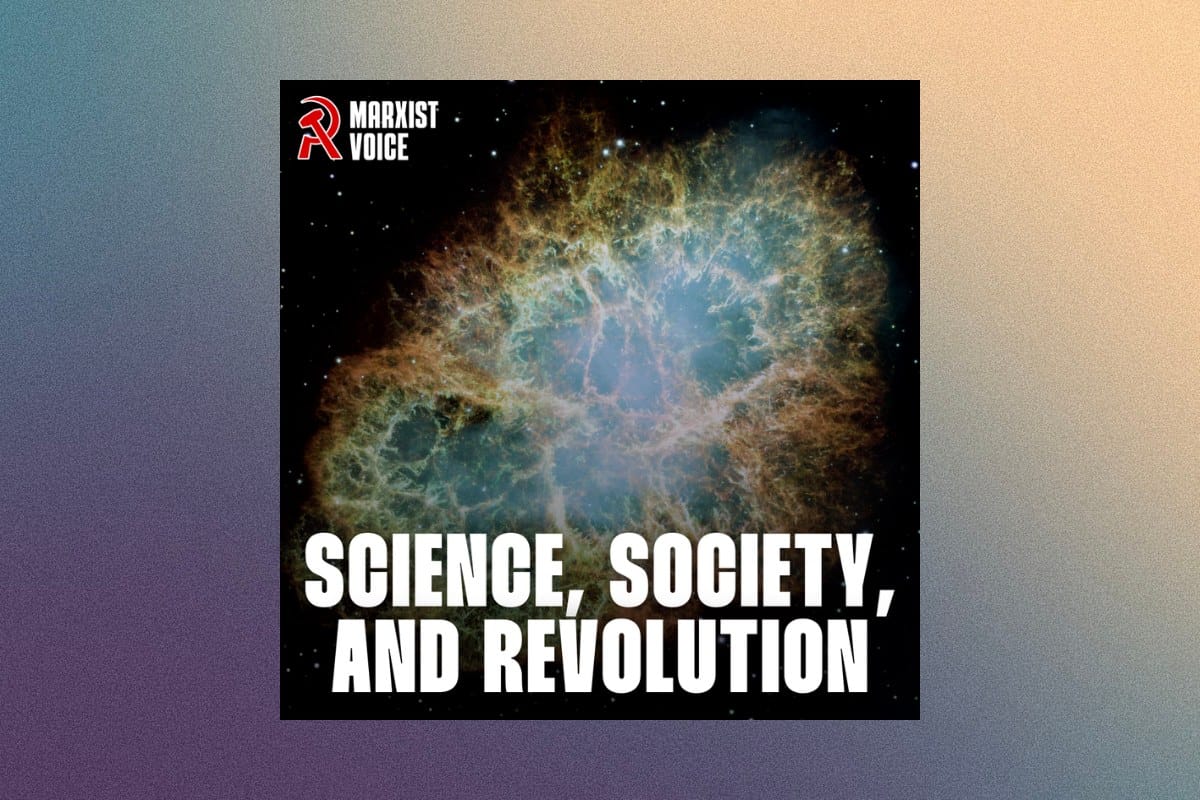No matter your thoughts on the subject, you cannot help but have a philosophy.
Whether it be from the news, the universities, the books you read, or the TV you watch, you are constantly inundated with the dominant ideas of society: the ideas of the ruling class.
For Marxists, our philosophy is a means of understanding the world around us so that we are best armed to change it. It is not a dogma, but a guide to action. It allows us to take the long view: to see the essential processes beneath the surface level chaos of the world.
To overthrow capitalism and establish socialism means society for the first time being run consciously by the working class as a whole. It therefore cannot be fought on the basis of fairy tales and illusions, but on the most scientific basis possible.

Marxism is not a checklist of policies or slogans for us to repeat mindlessly, it is a scientific method. What is needed is a scientific study of society, where it has developed from, and in which direction it necessarily will develop.
We fight for communism therefore not because it’s a nice idea, but because we understand that it is a historic necessity and is the only way for society to move forwards.
The aim of this introduction is not to replace the source material, but to inspire the reader to commit themselves to a serious study of it.
Materialism and idealism
Friedrich Engels once wrote that philosophy could be split into “two great camps”: idealism and materialism.
Usually, when you hear the word “idealist” it brings to mind a (potentially) naive visionary with high flying ideas. In philosophy, an idealist is somebody that believes that ideas are primary and have a separate existence from the material world – if they accept that this exists, which some of them don’t.
Into the idealist camp fall all forms of religion, where the world is the creation of some kind of deity that exists outside of the material world; where, if you are good in this life, you will be rewarded with a heavenly life after death.
Marxists are not idealists, we are materialists. This does not mean that we are obsessed with money and material pleasures. Again, in philosophy this word takes on a different meaning. It means we believe that reality is made up fundamentally of matter, and that it exists independently of our perception of it. Our ideas are reflections of this world: they approximate it.
By its very nature, an idea – which is an abstraction of the material world – simplifies the subject matter, removing it from its complex immediate context. The ability to form abstractions is immensely powerful, allowing our minds to ‘leap out’ of the here and now by analysing objects and treating them as types.
It can be easy, however, to lose sight of the material origins of ideas – a common trend in mathematics for instance. This can give the impression that ideas stand independently of the material world which they were made to approximate.
Here lies one of the sources of idealist philosophy: that the ‘purifying’ tendencies of thought give rise to the illusion that there is a higher, purer realm of ideas that is distinct from matter.
Historically, this trend has been solidified by the separation of physical and mental labour. Ever since the rise of class society, there has existed a layer of society free from having to work, that can instead occupy itself with philosophising. From this emerges the notion of ideas having an existence independent of and superior to the material world, specifically the world of physical labour.
We reject the notion that thoughts and consciousness are separate from matter. Thought is the product of matter organised in a certain way – in this case, a product of the brain and nervous system, along with the rest of the human body.
Idealists present this question in a shroud of mystery. Consciousness is obscured and separated from the world around it, mind and body are presented as completely different things.
It is true that in the past, many materialists, in stressing the power of natural objective processes and laws, left no role whatsoever for human agency. They presented consciousness as nothing but an effect of unthinking physical processes beyond our control.
Another example of a one-sided materialism is empiricism, which asserts that knowledge comes from direct observation through the senses. Such a seemingly simple statement was initially a revolutionary one, standing against the religious idea that knowledge comes from God.
Over time, however, empiricism reached its limits. Some empiricists ended up concluding that if all knowledge is derived from sense experience, then we can never know if or what exists beyond our sensations – we remain locked in our own consciousness.
Of course, it is true that we interpret the world through our senses; however, it must be added that there exists an objective material world, which is there regardless of whether or not we can sense it.
Humanity’s place in the world
The shortcomings of the old materialism would be partially overcome by an idealist, Hegel. His great role was in systematising dialectical logic, and developing the understanding of the active side of consciousness.
However, Hegel was not a materialist himself. For him, mind and not matter was the basis of reality. In his conception the natural world was simply the self-realisation of the ‘Absolute Idea’.
Ultimately it was Marx who succeeded in refounding materialist philosophy on a new and higher basis, with his statement that “real, sensuous activity” – practice – was the decisive component of human knowledge.
The mechanical materialists talked of “eternal laws” of nature that dictate to us how we behave, leaving no room for agency. On the opposite side today are those who deny all lawfulness altogether, such as the postmodernists. Any semblance of objective knowledge, they argue, is the construct of our own consciousness and is therefore arbitrary.
The answer to the problem of knowledge can be found in the entire history of human existence. Human beings are in a constant interaction with the material world (of which they are a part), being both subject to its laws but also acting back upon it. Through this process, deeper truths are uncovered about the world that we have harnessed to our own ends.
There are many formerly considered ‘secrets’ of nature that are now known to us – the minerals of the earth have been mined and refined into technology and machinery; the laws of aerodynamics are now understood, giving us the ability to fly.
As individuals we are limited. As a species however, it is a different story. Through endless generations of limited individuals, there is nothing that humanity cannot know, no truth that cannot be uncovered.
Whether or not a theory is correct depends on how well it approximates the material world. It is ultimately a practical question. “Approximate” is the key word here: reality is infinite and there are always deeper shades of truth that can be uncovered.
It is on this basis that collective human knowledge has accumulated over the entire course of human history. Underpinning great leaps in understanding have been revolutions in what we as Marxists term “the productive forces”. That is, the ability for society to produce more with less labour time, to develop more advanced tools.
Active process of knowledge
Humanity is also the product of its environment. We are therefore both subjects and objects, for we are both acting on and being acted on by the natural world. In transforming the world around us we are in turn transforming ourselves.
In his Theses on Feuerbach, Marx points out that human essence is the “ensemble of social relations”. In other words, human nature is not an abstract and eternal thing that is contained in every single person, but arises out of the collective relations of society.
When you are born, you are born into definite social relations. You are born into a certain country at a certain point in time, at a certain level of development and, most importantly here, into definite relations with production: into a class. This gives rise to a class consciousness: as you see today, the bosses and bankers have interests completely opposed to the interests of ordinary working people.
Ideas do not just fall from the sky, they come from somewhere, they reflect definite class interests and definite material conditions.
This answers the often used critique of Marxism – that ‘human nature’ is ‘inherently inclined towards capitalism’. In Ancient Rome, slavery was considered moral and just, for it was the basis of their economy. This is obviously not the case today.
Humanity is moulded by its social relations. And what those relations are has changed many times over the course of its history. As Marx said:
“All history is nothing but a continuous transformation of human nature.”
Formal logic
We have established by now that mankind is a part of the natural world, and thus is able to understand it and change it. This doesn’t mean, however, that consciousness is a passive blank slate.
Consciousness is active, we do not just absorb an endless pile of facts, we interpret these facts, draw out what is essential and cast aside what is superficial. We use this to form a more coherent image of the world. The human brain does this constantly. Otherwise, we would be overloaded with information, unable to see anything.
The question of how we interpret the world therefore is one of great importance. This means that we must understand logic.
In everyday life, people operate according to formal logic. This way of thinking is limited to the appearance of things: establishing categories, without contradiction. What does this mean? Well according to formal logic, something either is or it is not.
On a day-to-day basis, formal logic is perfectly sufficient. It quickly loses its usefulness, however, once you seek to understand more complex, drawn-out processes.
Take the evolution of species, as an example. In the short term you would be fairly safe in assuming that your pet cat remains just as much a cat today as it did yesterday.
Over the course of millions of years, however, species evolve. They cease to exist and are replaced by new ones.
Using formal logic, you only ever really get an isolated snapshot of reality. It is preoccupied with how things are in any given moment, which is a problem as reality consists of eternal motion and development.
As a result, it surgically removes things from their relations, taking things in their death rather than their life.
The most basic example of this is motion itself.
Contradiction
To be in motion is to be both in one place and another at the same time. This is because space and time is continuous, it is not divided into an endless series of fixed and isolated points.
If this were the case, then motion would be impossible, as the Ancient Greek philosopher Zeno of Elea demonstrated with his famous paradoxes. In one of these paradoxes, Zeno describes a racetrack, saying that it is impossible to get to the end of it: as, before you can cover a distance, you must first cover half that distance; and then half of that; and so on ad infinitum, never getting to the end.
If you treat things in motion as being only in one place at a given time, this eliminates motion entirely; it posits that an object that has moved from one place to another has done so by successively being completely still in an infinite number of points along the way.
Far from disproving the existence of motion, Zeno instead illustrated the limitations of this kind of formalistic thinking.
Marxists deal with complex and historical topics such as human consciousness, revolutions, the development of society, and many others. This requires a method that allows us to get as close as possible to the real process of events. We cannot afford to operate according to formal logic.
Such a method can lead to all manner of incorrect and reactionary conclusions: that human consciousness will never move in a revolutionary direction; that capitalism always has existed, and always will; that the institutions of the day are eternal. Events have proven that none of these things are true.
Dialectical logic
The philosophers of Ancient Greece first developed dialectical ideas, particularly figures such as Heraclitus, the work of whom is known to us only through obscure fragments such as:
“On those who enter the same rivers, ever different waters flow.”
The recovery and systematisation of dialectical logic would be carried out by Hegel. In his History of Philosophy, Hegel presented for the first time the history of human thought not as a random chain of disconnected ideas, but as a process in which everything is a part of an interconnected whole, where change is generally in the direction from lower to higher.
Hegel taught that the task of dialectical understanding is to delve beneath momentary appearances in order to discover what is essential over time.
Things that seem stable and familiar are in fact anything but; even within the most seemingly stable and fixed objects, they consist of mutually opposed yet dependent tendencies. Thus, rather than attempting to remove contradiction, dialectical logic embraces it.
Contained in every seed is the potential for it to grow into a plant, if nurtured with the right conditions. The plant is not an aberration, but the necessary result of the seed. One negates the other; yet the two are contained in an organic unity, both constituting the essence of the plant.
The seed does not develop into a plant through divine intervention, but through its internal relations. Implicit in this is progress – for the process occurs again but on a higher level than before – the plant produces more seeds which have slight genetic variations. Over the years, they become better adapted to their environments, and so on.
Everything is in such a process of self development, or as Hegel called it, becoming. Nothing is therefore self-contained. You cannot understand the qualities of something without referring to its relations.
Whereas formal logic takes opposites to be mutually exclusive, dialectics teaches us that opposites are interdependent. The precondition for the capitalist class is the propertyless working class; the precondition for the working class is the ownership of the productive forces by the capitalists.
Identity presupposes difference. Life is a meaningless term unless understood in relation with death, attraction could not exist without repulsion. Development therefore occurs through the interpenetration of opposites.
For a certain time, this will often occur imperceptibly, through small quantitative changes. At a certain point, the accumulated tension created by this development will lead to a qualitative leap forward. When heating water, there is a point where the accumulated tension beneath the surface leads to a qualitative change: liquid becomes gas.
This applies equally to human consciousness. Many on the left draw pessimistic conclusions that the working class is not interested in radical ideas, based on a superficial analysis. They see that the working class isn’t currently seizing power for itself and draw the conclusion that it never will.
And yet, after years of seeming docility in the face of attacks, mass movements of the working class burst to the surface based on the accumulated anger of many injustices.
Quality can therefore be found in the relations between quantities. In other words, the whole is greater than the sum of its parts.
A human being, for example, cannot be reduced to one specific organ, or a ‘soul’ that makes it human. Broken down into its component parts, you will be left with a heap of organic matter and severed limbs. It is the complex interrelation between these various component parts – the organs, nervous system, skeleton, and so on – combined then with constant interaction with the world around us, that makes us human.
Perspectives
Far from being isolated, every particular thing necessarily is connected to something greater than itself.
Whilst individual animals within a species live and die, the genus lives on. Each individual animal within the genus is of course different from the next, and yet there is a common thread of essential features and relations that runs through the generations.
Grasping these common threads – or universals – that transcend individuals, doesn’t take us further away from the truth. In fact, it brings us closer to the truth. Here lies the mainspring of Marxist theory: its ability to grasp the lawfulness that lies beneath the surface, and see things for how they really are in motion.
As Lenin wrote in his notebooks on Hegel’s Logic:
“Thought proceeding from the concrete to the abstract — provided it is correct (NB) […] — does not get away from the truth but comes closer to it. The abstraction of matter, of a law of nature, the abstraction of value, etc., in short, all scientific (correct, serious, not absurd) abstractions reflect nature more deeply, truly and completely.”
Dialectics teaches us that, despite the seemingly chaotic appearance of events, there are deeper processes going on beneath the surface. The task of the revolutionary party is to identify what these processes are in order to gain an understanding of the general line of march of events.
The foresight granted to us by revolutionary theory allows us to avoid the impressionism that plagues the left, which lacks any perspectives whatsoever and therefore is blown around by events – like a weathervane – ecstatic with optimism one day, and hopelessly pessimistic the next.
The starting point for this is dialectical materialism. Any communist worth their salt should strive to understand this, which begins with a serious study of Marxist philosophy.
Further reading
- An Introduction to Dialectical Materialism – Various authors
- What Is Marxism? – Rob Sewell and Alan Woods
- History of Philosophy: A Marxist Perspective – Alan Woods
- Ludwig Feuerbach and the End of Classic German Philosophy – Friedrich Engels
- The Revolutionary Philosophy of Marxism – Various authors
- Materialism and Empirio-criticism – V. I. Lenin
- Reason in Revolt: Marxism and Modern Science – Ted Grant and Alan Woods
- Anti-Dühring – Friedrich Engels
- Dialectics of Nature – Friedrich Engels






